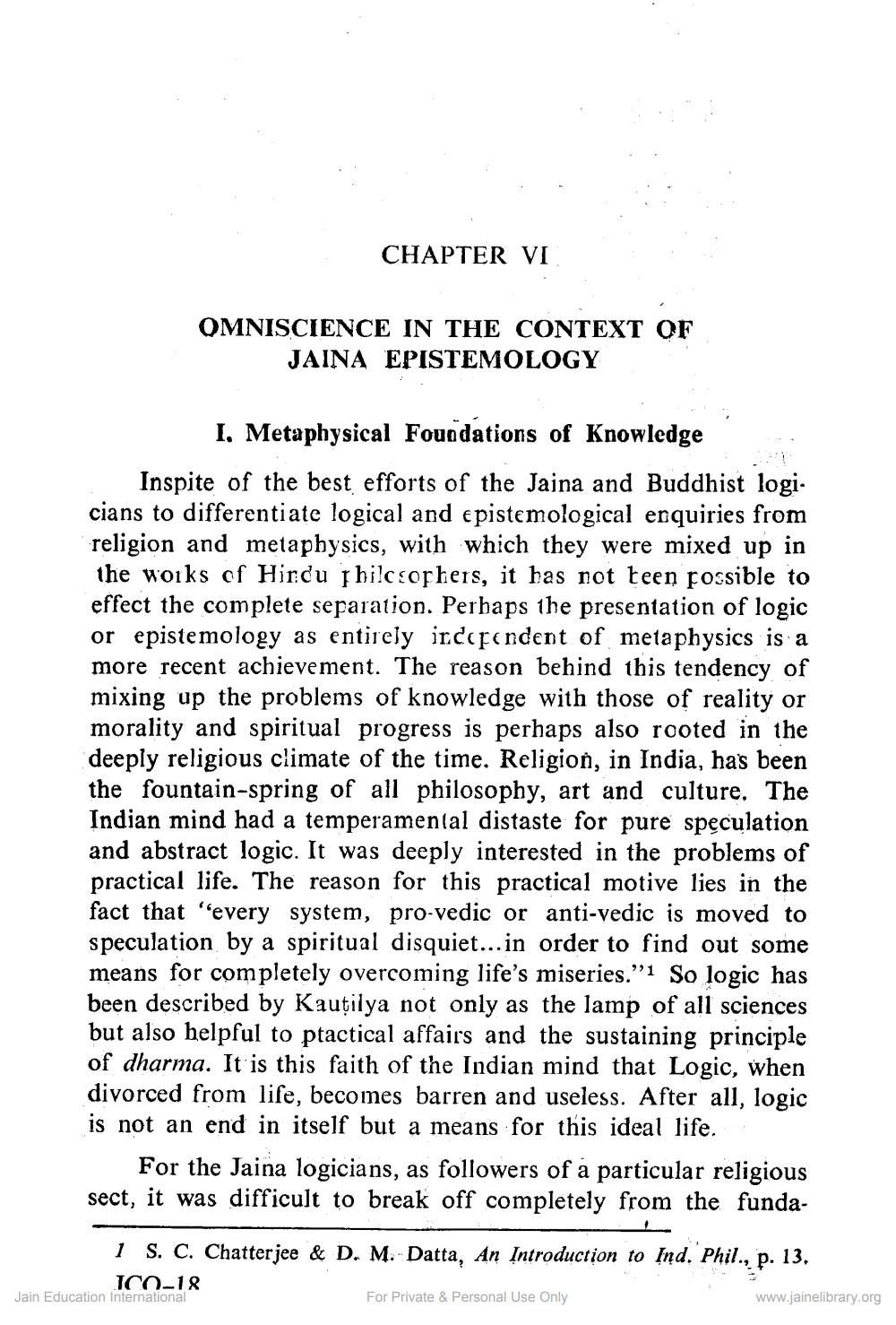________________
CHAPTER VI
OMNISCIENCE IN THE CONTEXT OF
JAINA EPISTEMOLOGY
I, Metaphysical Foundations of Knowledge
Inspite of the best efforts of the Jaina and Buddhist logi. cians to differentiate logical and epistemological enquiries from religion and metaphysics, with which they were mixed up in the works of Hirdu j hilosophers, it has not been possible to effect the complete separation. Perhaps the presentation of logic or epistemology as entirely independent of metaphysics is a more recent achievement. The reason behind this tendency of mixing up the problems of knowledge with those of reality or morality and spiritual progress is perhaps also rooted in the deeply religious climate of the time. Religion, in India, has been the fountain-spring of all philosophy, art and culture. The Indian mind had a temperamental distaste for pure speculation and abstract logic. It was deeply interested in the problems of practical life. The reason for this practical motive lies in the fact that "every system, pro-vedic or anti-vedic is moved to speculation by a spiritual disquiet... in order to find out some means for completely overcoming life's miseries.”1 So logic has been described by Kautilya not only as the lamp of all sciences but also helpful to ptactical affairs and the sustaining principle of dharma. It is this faith of the Indian mind that Logic, when divorced from life, becomes barren and useless. After all, logic is not an end in itself but a means for this ideal life.
For the Jaina logicians, as followers of a particular religious sect, it was difficult to break off completely from the funda
1 S. C. Chatterjee & D. M. Datta, An Introduction to Ind. Phil., p. 13.
ICO-18 Jain Education International For Private & Personal Use Only
www.jainelibrary.org




